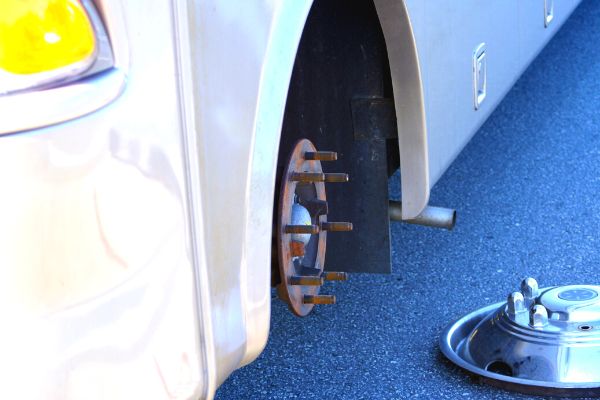Reduce the Need for RV Roadside Assistance
In 1736, Ben Franklin warned the city of Philadelphia about the likelihood of widespread fire by saying, “An ounce of prevention is worth a pound of cure.” His words are just as true today when thinking about the need for RV roadside assistance. Here’s an ‘ounce of prevention’ for every RV enthusiast.
7 Tips to Avoid Calling for RV Roadside Assistance
1. Start the trip out right by checking and stowing everything properly. Consult the Quality RV Resort pre-trip checklist to make sure you haven’t overlooked anything.
2. Tires – Although tires are mentioned on the Pre-Trip Checklist, it’s worth talking about this subject again. Often neglected, tires are the most vulnerable part of your RV. Underinflated tires reduce the load capacity of your vehicle and cause premature tread wear. Tires are expensive! Check the tire pressure and look for cracks in the sidewalls before beginning your trip.
3. Weights – Not yours, personally. Know the Gross Vehicle Weight Rating of your RV, meaning the weight of the vehicle when it’s fully loaded with all your stuff, including luggage, propane, water, and your dog. OK, you too. An overloaded vehicle will cause difficulty with the ability to stop safely and quickly in an emergency.
4. Brakes – Very important! Check your brakes periodically throughout the year. Excess powder on the rims is a sign your brakes are working harder than they should. In order to avoid calling for RV roadside assistance, get an infrared temperature tester and use it once a day to check the temperature of your brake drums, axle hub, and tires. If you see an abnormal spike in the temperature, you’ll know there is trouble brewing.
5. Driving – Practice makes perfect! Maneuvering that big vehicle isn’t easy, particularly around right-hand turns. Your RV is about two feet wider than your car and it takes longer to stop. So look for gas stations, rest-stops, and campgrounds like most of the Quality RV Resort destinations that offer pull-thru parking. It’s so much easier.
6. Engine Maintenance – Most engine failures are caused by poor maintenance or lack of inspections. Change the oil and all fluids and filters regularly. The weight of your loaded RV is important for both the brakes and the engine. When weighing your RV, always aim for 10% below the maximum capacity, so you are not carrying a full load and putting a strain on your engine.
7. How big is your RV? You can avoid calling for RV roadside assistance by measuring your vehicle and keeping its dimensions on a card on your dashboard. That way, you’ll know better than to drive your 13’ tall RV into a tunnel that has only 12’ of clearance.
We hope these tips help you to avoid calling for RV roadside assistance during all your RV trips! Every Quality RV Resort destination in Texas offers comfort, convenience, deluxe amenities, and excellent guest services. Most offer easy-in/easy-out pull-thru campsites. choose your ideal destination and come see us real soon.
